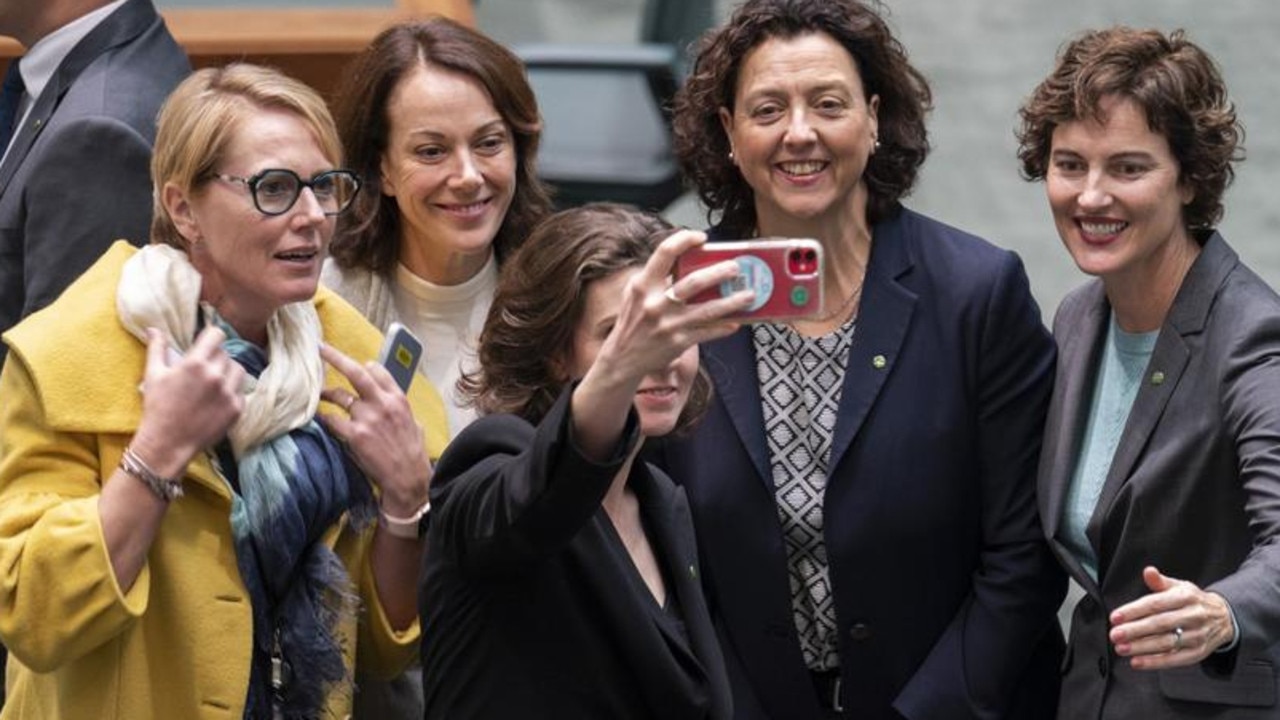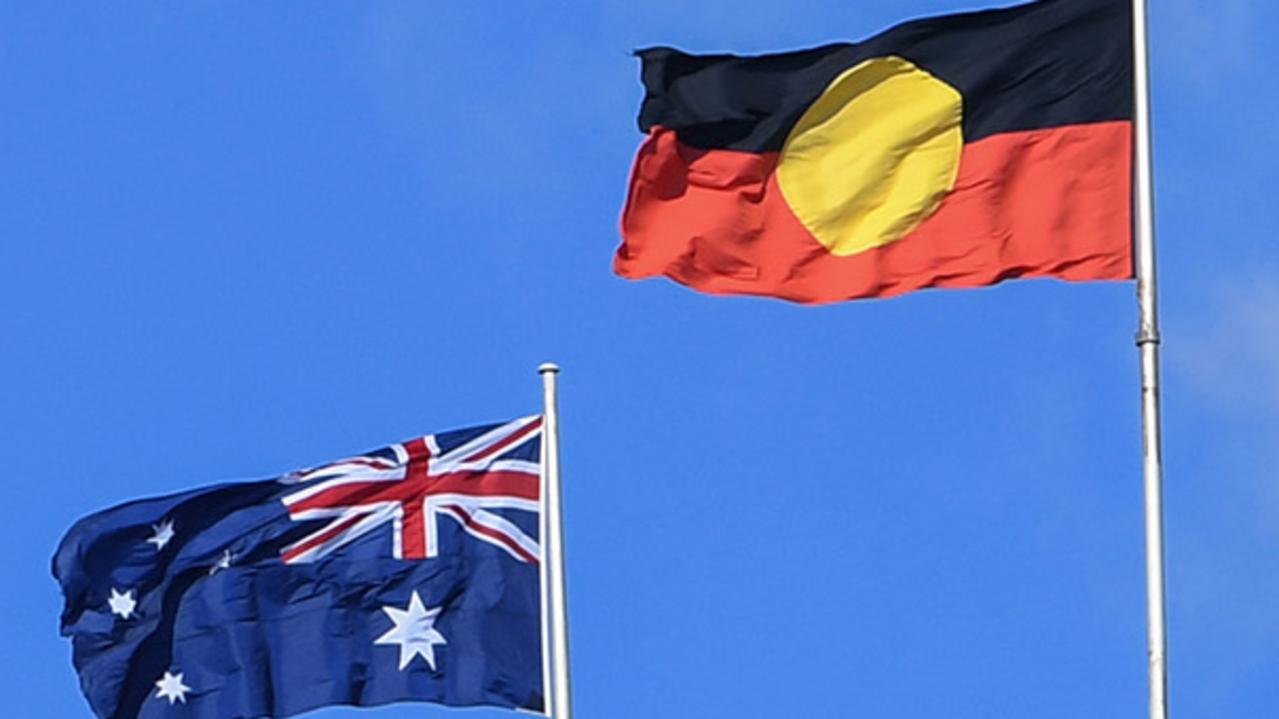Rising Tide running out on urban Greens as young worry more about cost of living than climate
Amid a rental crisis and the skyrocketing cost of living, it seems younger millennials and Gen Z are more worried about making ends meet at home than a dubious coal blockade.

Opinion
Don't miss out on the headlines from Opinion. Followed categories will be added to My News.
The hare-brained decision from City of Sydney councillors this week to donate $22,000 to the Rising Tide protest group may have been proposed by a member of Clover Moore’s political party, but it all started with the Greens.
The no-strings-attached donation came via an amendment moved by Councillor Jess Miller to a Greens motion chastising the Minns government over tough anti-protest laws.
The meaningless motion, from Green Sylvie Ellsmore, was bread and butter for a party devoted to protest over progress.
But outside the Town Hall council chambers (and the Rising Tide protest 170km away), is anyone listening?
Not, it seems, the young people on whom the Greens have traditionally relied for support.
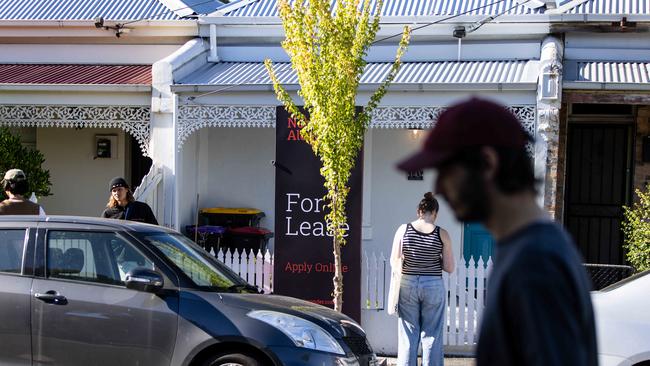
As revealed in an exclusive RedBridge poll of NSW public opinion, young voters are fleeing the Greens for Labor.
Compared to the same poll three months ago, the Greens are down nine percentage points in this cohort.
In September, more than a quarter of those aged 18-34 (26 per cent) would vote one Green. Now, it is only 17 per cent.
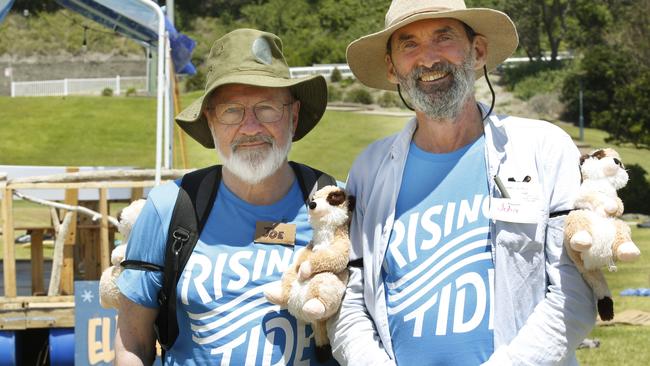
In direct contrast, Labor’s first preference share is up nine points among that group, to 43 per cent.
Independents and other minor parties have also copped a whack from young voters, down five points from 13 per cent to eight per cent, with the Coalition up five points to 32 per cent.
In short, young voters seem to be turning away from fringe groups to parties who can actually deliver change.
Amid a rental crisis and the skyrocketing cost of living, it seems younger millennials and Gen Z are more worried about making ends meet at home than a coal blockade, or Australia’s stance on a war on the other side of the world.
The data backs this up: for the first time, the cost of living has emerged as the number one concern for 15-19 year olds on Mission Australia’s annual Youth Survey Report, released on Thursday.
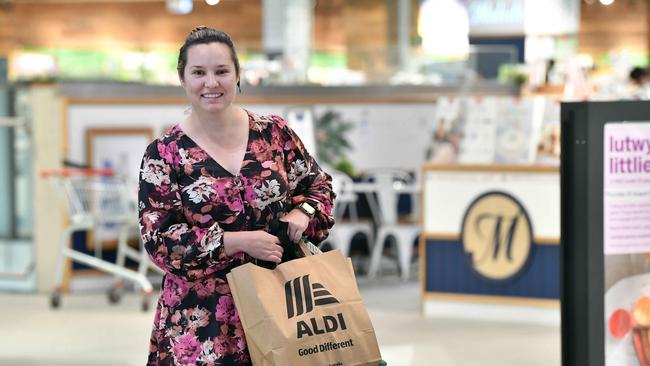
More than 56 per cent of respondents to the survey labelled the cost of living as their top concern this year, up more than 20 per cent than the year before.
One 19 year old quoted in the report says she has “nothing left” after paying for necessities.
“I’m working to survive not to live.”
When you are struggling every day to survive, is there any wonder that concerns about climate change and the environment have dropped off?
While 45 per cent of respondents labelled climate change as their biggest concern two years ago, that figure has slumped way down to 27 per cent.
These results play into the never-ending war between Labor and the Greens, which has most recently flared up over housing legislation.
In the battle of the left, the Greens party is coming off second-best, Redbridge Director Kos Samaras says.
“Green voters are not like Green activists, and that’s the Greens party, unfortunately for them, has mistaken the two.”
“Green voters don’t dislike Labor, and so the problem that the Greens have gotten themselves into is that they’ve come across to these voters as being way too aggressive towards Labor and being seen to assist the Coalition by being so negative,” he says.
Violent Greens-backed protests against the war in Gaza are also damaging the minor party among its voter base, Samaras says.
As one NSW Labor source puts it, “the Greens activist base is becoming increasingly removed from its voter base”.
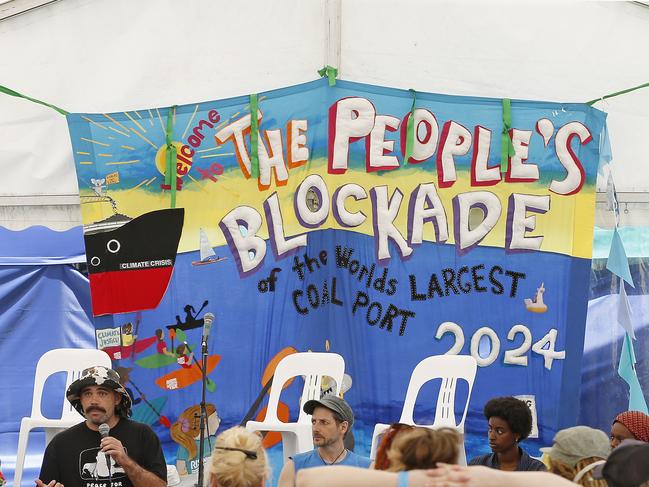
At the macro level, however, the shift of young voters from the Greens to Labor will be cold comfort to Labor as it heads into the federal election next year.
In NSW, Prime Minister Anthony Albanese is dragging down support for Labor despite strong approvals for NSW Premier Chris Minns.
Labor had been hoping to go to an election on a cost of living platform, on the belief that tax cuts would start to have an impact and the nation’s economic impact improved.
By about July, I’m told, insiders realised that strategy would be impossible because things were not getting better. It is hard to run a re-election strategy based on your achievements if people are worse off now than they were two years ago.
“In the current political environment where there is a strong mood for change sentiment fuelled by grievance and pervasive personal economic insecurity, incumbency is no longer the advantage it once was,” says Redbridge director Tony Barry.
Premier Minns is lucky that the next state election is still two years away.




